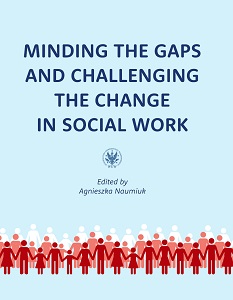African Elderly Refugees’ Perspectives on Needs Assessment and Response Processes in Refugee Camps in Uganda
African Elderly Refugees’ Perspectives on Needs Assessment and Response Processes in Refugee Camps in Uganda
Author(s): Benard Ogwok
Subject(s): Pedagogy
Published by: Wydawnictwa Uniwersytetu Warszawskiego
Keywords: migration; elderly refugees and their needs; social workers; social intervention programs; refugee camps in Uganda
Summary/Abstract: Globally, older refugees have been receiving minimal attention due to their limited involvement in expressing their needs and because of limited statistics provided on this group. This study employed a research design using qualitative approach to understand how older refugees perceive the process of needs assessment and social support in Ugandan refugee camps. Three Focused Group Discussions involving 21 older refugees (12 female and 9 male) and 5 in-depth interviews involving social workers were conducted in the Bidi-Bidi and Adjumani Refugee camps. The findings of the study show that older persons perceive themselves as being selectively supported, while they also notice that there are no clear criteria to identify their needs which are not prioritized, support groups exclude some of the older refugees, and there are no specific organizations that work with older refugees. On the other hand, social workers reported some methods used by them in assessing the needs of older people, such as legal aid clinics, community-based volunteers, and focused group discussions. The study concludes by emphasizing that all interventions implemented by social workers and their agencies during social emergencies targeting older people, and the positions (voices) of older refugees as service users, should take precedence over the conventional routine activities that do not create much positive change in their lives. The recommendation is that older people should feel included in all decisions that target them throughout intervention programs or support projects cycles.
- Page Range: 93-109
- Page Count: 17
- Publication Year: 2021
- Language: English
- Content File-PDF

